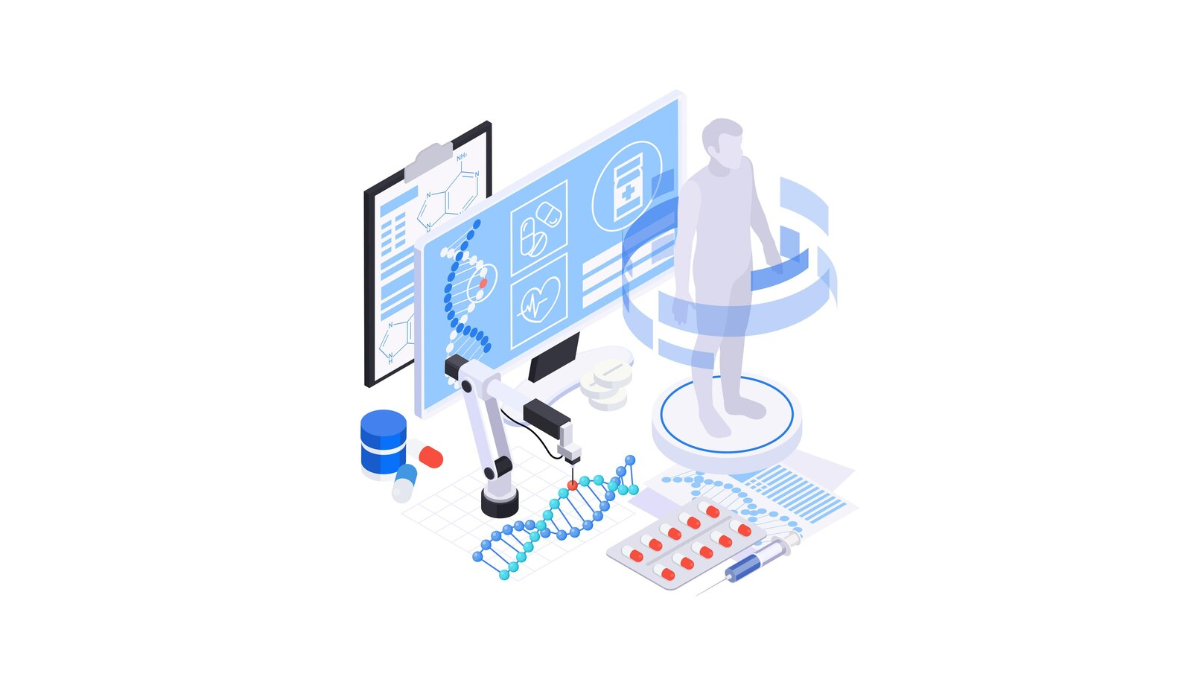AI in Clinical Trials: Revolutionizing Drug Development

Strong 8k brings an ultra-HD IPTV experience to your living room and your pocket.
Introduction
In recent years, the intersection of artificial intelligence (AI) and clinical research has transformed the pharmaceutical landscape. Advances in machine learning, big data analytics, and computational power are pushing the boundaries of traditional clinical trials. These innovations are not only accelerating the pace of drug development but also enhancing the precision and personalization of medical treatments.
One of the most impactful developments in this space is AI in clinical trials. Organizations worldwide are beginning to harness its potential to streamline patient recruitment, optimize trial protocols, and analyze massive volumes of data with unprecedented accuracy. This revolution is reshaping how drugs are evaluated, how risks are managed, and ultimately, how patient outcomes are improved.
As more pharmaceutical companies integrate AI into their research processes, many are also turning to advanced digital strategies to ensure their solutions are seamlessly implemented. Early adopters have seen reductions in trial costs and duration, along with significant improvements in diagnostic accuracy—heralding a new era in medical research.
Latest Trends in AI in Clinical Trials
The application of AI within clinical research is changing the way studies are designed and executed. Here are some of the latest trends:
- Enhanced Patient Recruitment and Stratification: Traditional clinical trials often suffer from long recruitment times and heterogeneous patient populations. AI-driven tools help streamline the identification of eligible candidates from electronic health records (EHRs), social media, and other data sources. By analyzing historical data and patient demographics, these tools can predict which populations are most likely to benefit from specific treatments, ensuring trials are more effective and inclusive.
- Adaptive Trial Design: Conventional clinical trials use fixed protocols, but AI-driven systems enable adaptive trial designs. These systems allow for real-time modifications based on emerging data—adjusting dosages, refining inclusion criteria, or even reallocating resources among treatment arms. This flexibility enhances trial efficiency and can lead to faster, more cost-effective drug approvals.
- Real-Time Data Analysis and Monitoring: With the advent of wearable devices and remote monitoring, trial data is now generated continuously. Integrating AI with these data streams facilitates real-time analysis, enabling trial coordinators to monitor patient responses and intervene promptly if adverse events occur. This trend not only improves patient safety but also ensures higher data integrity throughout the trial lifecycle.
- Predictive Modeling for Efficacy and Safety: Sophisticated algorithms now predict treatment outcomes by analyzing vast datasets, including previous clinical trials, patient records, and even genetic information. These predictive models help in identifying potential side effects and efficacy issues well before they manifest, thereby refining trial design and patient safety protocols.
- Automation of Administrative Tasks: AI automates many of the repetitive and administrative tasks associated with clinical trials, such as data entry, scheduling, and regulatory reporting. This automation reduces the administrative burden on staff and allows researchers to focus on complex clinical decisions and strategy formulation.
Uses and Applications
The practical applications of AI in clinical trials are already proving transformative. Some of the key uses include:
- Optimized Trial Enrollment: AI algorithms quickly sift through enormous databases to identify patients who meet the specific inclusion criteria for a trial. This process reduces recruitment time significantly and helps in creating a more homogeneous patient cohort, improving the reliability of trial results.
- Improved Protocol Development: Through advanced simulations and analysis of historical trial data, AI can assist in designing optimal study protocols that anticipate potential pitfalls. This proactive approach reduces the likelihood of protocol amendments later in the trial, thereby saving time and resources.
- Enhanced Safety Monitoring: Continuous monitoring of patient data allows for the early detection of adverse reactions. AI systems flag potential safety issues and alert clinical staff, enabling prompt intervention and minimizing risks to patient health.
- Data Integration and Analysis: AI in clinical trials facilitates the integration of diverse data types—from lab results and imaging data to EHRs and patient-reported outcomes. By synthesizing this information, AI offers a comprehensive view of trial performance and patient responses, enabling more informed decisions throughout the research process.
- Regulatory Compliance and Reporting: Automated data collection and analysis help streamline the generation of reports required by regulatory authorities. This ensures that compliance is maintained throughout the trial and reduces the likelihood of errors during audits.
Challenges of Integrating AI in Clinical Trials
Even as AI holds enormous promise for revolutionizing clinical trials, several challenges remain:
- Data Quality and Standardization: AI models require high-quality, standardized data. However, data in healthcare is often fragmented and stored in diverse formats. Inconsistent data quality can hamper the accuracy of predictive models and delay the integration process.
- Regulatory Hurdles and Ethical Concerns: The use of AI in clinical trials raises regulatory and ethical issues, particularly around data privacy and patient consent. Ensuring that AI-driven processes adhere to regulations like HIPAA, GDPR, and FDA guidelines requires rigorous oversight and transparency.
- Algorithmic Bias: If training datasets are not diverse or representative, AI models may perpetuate existing biases, leading to skewed outcomes or inequitable treatment strategies. Continuous evaluation and refinement of algorithms are necessary to mitigate this risk.
- Integration with Legacy Systems: Many healthcare organizations still operate on legacy systems that are not designed for seamless integration with advanced AI platforms. Upgrading these systems to work together with new technology can be complex and expensive.
- High Implementation Costs: The initial cost of developing and deploying AI systems can be significant, especially for smaller organizations. Although long-term savings are likely, the upfront investment remains a major barrier to widespread adoption.
Advantages of AI in Clinical Trials
Despite the challenges, the benefits of implementing AI in clinical trials are substantial:
- Accelerated Drug Development: By shortening recruitment times, optimizing trial protocols, and providing real-time insights, AI significantly reduces the overall timeline for drug development. This acceleration can lead to quicker access to groundbreaking treatments for patients.
- Increased Diagnostic Accuracy: AI enhances the precision of clinical diagnoses by identifying subtle patterns in patient data that might be missed by human observers. This leads to improved efficacy in treatment and a reduction in diagnostic errors.
- Cost Efficiency: Automation and improved data management result in significant cost savings. Fewer hospital readmissions, optimized resource allocation, and reduced administrative overhead all contribute to lowering overall operational expenses.
- Better Patient Outcomes: Early detection of adverse events and personalized treatment approaches lead to better health outcomes. Patients benefit from proactive care strategies that significantly improve their quality of life.
- Enhanced Research Capabilities: AI enables more sophisticated analyses of clinical trial data, leading to new insights and more robust evidence for treatment efficacy. Researchers can leverage these insights to refine therapies and explore new avenues for medical innovation.
The Future of AI in Clinical Trials
Looking ahead, the role of AI in clinical trials is set to expand even further, driven by continuous technological advancements and increasing data availability:
- More Adaptive Trial Designs: Future clinical trials may become fully adaptive, using AI to modify protocols dynamically as data is gathered. This could result in safer, more efficient trials that adapt in real time to emerging trends and patient responses.
- Integration with Genomics and Personalized Medicine: Combining AI with genomic and proteomic data will enable highly personalized medicine. Clinical trials will be able to tailor treatments based on individual genetic profiles, leading to higher success rates and more targeted therapies.
- Enhanced Collaboration Across Research Teams: Improved data-sharing platforms powered by AI will facilitate collaboration among researchers worldwide. Real-time data integration and unified analytics platforms could accelerate innovation and ensure that clinical findings are disseminated more rapidly.
- Utilization of Blockchain for Data Integrity: Blockchain technology may soon be used to secure clinical trial data. Its tamper-proof characteristics will provide a reliable system for managing patient data, ensuring compliance with regulatory standards, and maintaining trust among all stakeholders.
- Broadening of AI Applications: Beyond diagnostics and protocol optimization, AI may increasingly inform regulatory decision-making, risk management, and even the design of virtual clinical trials. This broader application of AI will help streamline the entire drug development process.
Conclusion
AI in clinical trials is fundamentally reshaping the landscape of medical research. By automating data analysis, optimizing recruitment, and enhancing decision-making, AI-driven solutions are not only speeding up drug development but also significantly improving the accuracy and safety of clinical research. While challenges such as data integration, regulatory compliance, and implementation costs remain, the benefits—ranging from reduced timelines and costs to improved patient outcomes—are driving rapid adoption.
As healthcare continues to embrace digital transformation, AI will play an increasingly critical role in clinical trials. For organizations ready to invest in next-generation research tools, the integration of AI offers a clear path toward more efficient and personalized healthcare. With its promise of adaptive, data-driven solutions, the future of clinical trials looks brighter than ever.
Frequently Asked Questions (FAQ)
Q: What does AI in clinical trials mean?
A: It refers to the integration of artificial intelligence technologies in the design, execution, and analysis of clinical trials, aimed at improving efficiency, accuracy, and patient outcomes.
Q: How can AI accelerate drug development?
A: AI streamlines patient recruitment, optimizes trial protocols, and processes vast datasets in real time, leading to faster data analysis and more rapid decision-making.
Q: What are the main challenges with AI in clinical trials?
A: Challenges include data standardization, regulatory compliance, algorithmic bias, integration with legacy systems, and high initial implementation costs.
Q: Can AI completely replace human decision-making in trials?
A: No, AI is a decision support tool that augments clinical expertise. It assists clinicians in making better-informed decisions while the final judgments remain with human experts.
Q: How do regulatory agencies view AI-driven clinical trials?
A: Regulatory bodies are increasingly open to AI applications, provided that the systems adhere to strict data privacy, security, and validation standards.
Q: What future developments are expected for AI in clinical trials?
A: Future trends include adaptive trial designs, integration with genomic data, enhanced collaboration through unified platforms, and secure data management using blockchain technology.
Q: Is there a benefit for smaller organizations to adopt AI in clinical trials?
A: Yes, cloud-based and scalable AI solutions make it feasible for smaller organizations to leverage these technologies, reducing costs and enhancing research quality over time.
Note: IndiBlogHub features both user-submitted and editorial content. We do not verify third-party contributions. Read our Disclaimer and Privacy Policyfor details.







